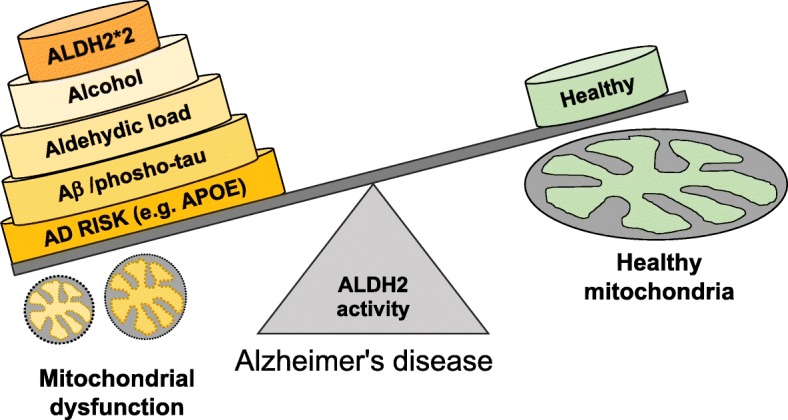Fig. 7.

Ethanol injury leads to increase in aldehydic load and subsequent aldehyde adductions on mitochondrial proteins, leading to mitochondrial dysfunction, depletion of ATP, and to ROS accumulation. ALDH2*2 mutation further decreases the clearance of the toxic aldehydes, causing additional ROS generation and mitochondrial dysfunction. These pathological changes in neurons and astrocytes in vivo lead to neuroinflammation, thereby affecting the ability of glial cells to clear cellular debris, including Aβ. We therefore suggest that the susceptibility to Alzheimer’s disease in subjects carrying ALDH2*2 mutation increases if they consume alcoholic beverages and that reduction of the aldehydic load in patients without or with ALDH2 inactivating mutation may help slowing down disease progression
